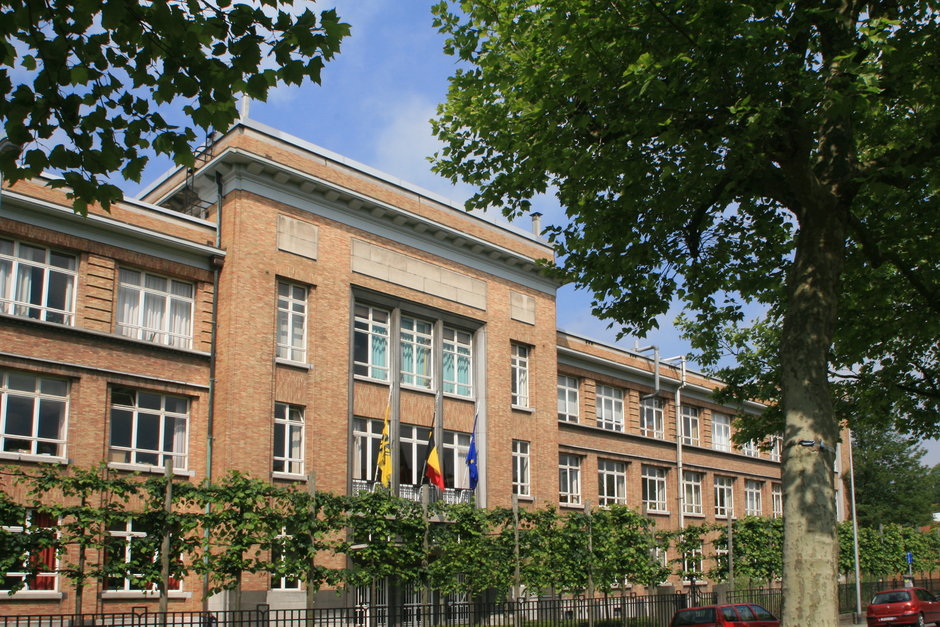Microbial communities play a crucial role in maintaining health and driving disease processes. Understandin how microbes interact with each other, their host, and their environment provides valuable insights into new diagnostic, therapeutic, and preventive strategies. The Jury Activity Proposal “Microbial Interaction in Health and Disease” brings together leading experts to explore cutting-edge research on microbial interactions across diverse contexts, from the human gut to the oral cavity. Topics include innovative approaches to studying microbiota and their potential for personalizing medicine, as well as the fascinating dynamics between fungi and bacteria in shaping oral health. This event promises to bridge disciplines, inspire collaboration, and uncover the complex mechanisms through which microbes influence health and disease.
Contact person: Prof. Nico Boon, nico.boon@ugent.be
Date: 23.01.25, 14:00 – 16.00h
Location: Auditorium A2 Herman J. De Vleeschauwer, Campus Coupure, Coupure Links 653; 9000 Gent
14.00h: Multi-parametric microbiota flow cytometry for personalisation of medicine
Prof. Hyun-Dong Chang,
Deutsches Rheuma-Forschungszentrum (DRFZ) Berlin
Hyun-Dong studied biology at the Free University Berlin and at the University of California, San Diego (UCSD). During his PhD thesis at the German Rheumatism Research Center (DRFZ) Berlin, he studied the regulation of cytokine expression in T cells. His research focused on the establishment and maintenance of a functional memory in T cells, in particular the molecular basis and prerequisites of epigenetic and functional imprinting of T cells for cytokine expression and the molecular adaptations of T cells to chronic inflammation allowing them to function and persist in inflamed tissue. Currently, his lab, the Schwiete-Laboratory for Microbiota and Inflammation at the DRFZ, focuses on understanding the role of the intestinal microbiota in the prevention, triggering and maintenance of chronic inflammation.
Publication list: https://scholar.google.com/citations?user=8jD2ylcAAAAJ&hl=nl&oi=ao
14.30h: Oral fungi, breathtaking!
Prof. Bastiaan Krom
Vrije Universiteit Amsterdam
Bastiaan Krom is a molecular microbiologist with extensive experience in (molecular) biology of Candida albicans. He obtained a PhD from the University of Groningen, did a Post-doctoral fellowship at Georgetown University Medical Center (Washington DC, USA) and worked at the department of Biomedical Engineering of the University Medical Center Groningen. Since 2011 he works at the department of Preventive Dentistry of the Academic Centre for Dentistry Amsterdam (ACTA). Since January 1st 2024 he is chair of the department of Preventive Dentistry. His research focusses on the dynamic interactions between fungi and bacteria in the oral cavity. Using complex in vitro models he aims to unravel the effect of fungi on the commensal and pathogenic oral microflora. Interactions with the hard and soft host-tissues are important in these studies.
Publication list: https://scholar.google.com/citations?hl=en&user=-3jqCSYAAAAJ
15.00h: Adapt or starve: How Salmonella evolves to compete for shared resources with a probiotic
Prof. Hans Steenackers KU Leuven
Hans Steenackers graduated as a Bioscience Engineer at the KU Leuven in Belgium in
2006. His PhD and postdoctoral research focused on the molecular mechanisms of microbial biofilm formation and biofilm inhibition. A research stay in the laboratory of evolutionary biologist Kevin Foster at the University of Oxford (2015-2017) inspired him to look at these mechanisms in a broader ecological and evolutionary context. At the end of 2016, he obtained a professorship position at the Faculty of Bioscience Engineering at the KU Leuven and started the ‘MiCA Lab’ (www.micalab.be). The overall goal of his lab is to study the behaviour of microbial communities, including biofilms, that are of clinical or industrial importance and use this behaviour as target for innovative evolutionarily robust (i.e. resistance-proof) antimicrobial strategies. To this end he is coordinating several multi-partner research projects at the European, Belgian and regional level. In addition, he is lecturing courses on microbiology, biochemistry, novel antimicrobials and antimicrobial resistance.
Publication list:
https://scholar.google.com/scholar?hl=nl&as_sdt=0%2C5&q=hans+steenackers&btn G=&oq=hans+steena
